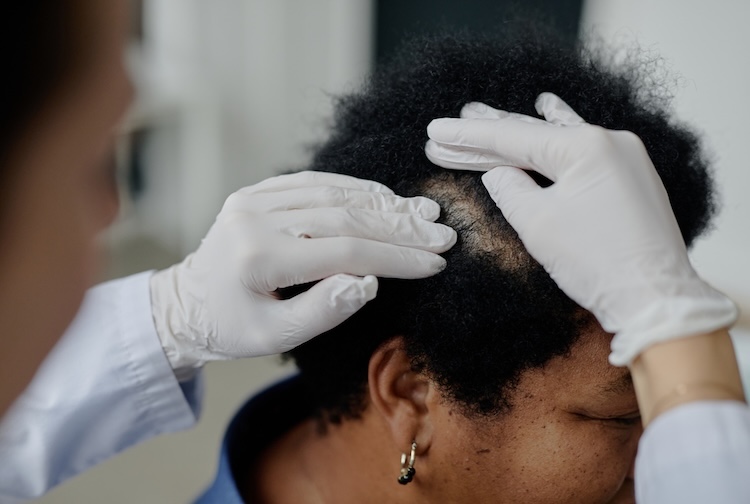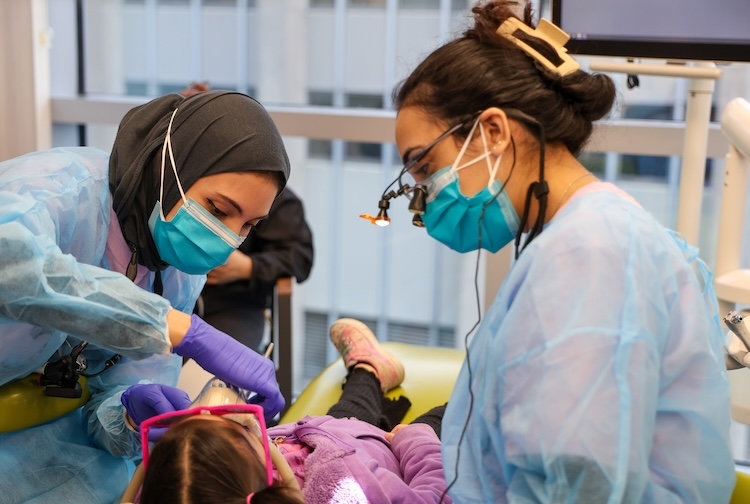How do vaccines work? A simple guide for patients
Kelly Goode, Pharm.D., explains how vaccines fight off germs and reduce how sick we get from viruses.
October 27, 2025 Vaccines go through several rounds of clinical trials before being reviewed by the U.S. Food and Drug Administration for approval. (Getty Images)
Vaccines go through several rounds of clinical trials before being reviewed by the U.S. Food and Drug Administration for approval. (Getty Images)
By Mary Kate Brogan
Flu season is getting underway, and the best way to protect yourself from severe illness is to get vaccinated. But flu isn’t the only thing vaccinations can protect against, says expert Jean-Venable “Kelly” Goode, Pharm.D., a professor in the Department of Pharmacotherapy and Outcomes Science at VCU School of Pharmacy.
“Vaccines are your opportunity to protect yourself and those you love against vaccine-preventable disease,” said Goode, who also serves as director of the VCU Community-based Pharmacy Residency Program, leading the training of future community pharmacists. “The quote ‘vaccines cause adults’ is absolutely true. But don’t forget adults need vaccines too!”
A leading national expert on vaccines, Goode serves as a member of the National Foundation for Infectious Diseases Board of Directors and the American Pharmacists Association (APhA) liaison to the Centers for Disease Control and Prevention’s Advisory Committee on Immunization Practices. The APhA Foundation also named Goode as one of the most influential women in pharmacy in 2022.
 Kelly Goode, Pharm.D., BCPS, FAPhA, FCCP, is a professor at VCU School of Pharmacy. (Tom Kojcsich, Enterprise Marketing and Communications)
Kelly Goode, Pharm.D., BCPS, FAPhA, FCCP, is a professor at VCU School of Pharmacy. (Tom Kojcsich, Enterprise Marketing and Communications)
Keeping up with what you need to know about immunizations can be time consuming, so Goode spoke with VCU Health News about how vaccines work.
What exactly is a vaccine? How does it protect the body from illnesses?
Vaccines help your body fight against infections. When a person receives a vaccine, it helps teach your immune system what the germ looks like so the body’s natural defenses can prepare to protect against it. The body learns how to defend itself without the dangers of the actual infection. Immunization protects a person from getting sick and from spreading infections. Getting vaccinated can help you stay healthy and save your life.
How do mRNA vaccines work compared to traditional vaccines?
Scientists have been working with and studying messenger RNA (mRNA) vaccines for decades. And during the COVID-19 pandemic, the mRNA technology allowed for a rapid response to produce a vaccine that was effective and easily adaptable as the virus (germ) changed over time. mRNA vaccines provide the directions for the body to produce a small piece of genetic code.
Our immune system is able to recognize the genetic code and produce antibodies. If we are then exposed to the actual virus, our immune system is able to recognize it and fight it off. Traditional vaccines contain antigens, which are weakened or inactivated bacteria or viruses (germs), that help teach your immune system what the germ looks like so the body’s natural defenses can learn to recognize it when exposed to the germ.
Why do some vaccines need booster shots?
A vaccine helps your body learn how to fight off infectious disease. It may require more than one initial dose of a vaccine to build complete immunity or strong antibody levels. Antibodies can also decrease over time, and with fewer antibodies, the body may not respond as strongly to fight the virus or bacteria. A booster dose is an extra dose of the vaccine to “boost” the immune system. Booster doses also help the body learn how to fight off viruses that change or mutate over time.
Why do we need only one or two shots for viruses like measles, while there are annual immunizations for the flu?
Measles vaccines contain weakened measles virus that is used to train the immune system to recognize and fight the actual virus without causing a full-blown infection. Live vaccines typically give you longer, or even lifelong, immunity. The weakened virus mimics the actual infection causing a more robust immune response.
The flu virus is smart and changes to avoid immune systems that can recognize it. These changes can be small drifts in the virus, which can happen yearly, or a major shift, which can cause a pandemic. Each year, the U.S. Food and Drug Administration (FDA) and the World Health Organization (WHO) track influenza viruses around the world to identify which virus is likely to circulate during the flu season. Vaccines are made that address three strains of the flu that will most likely circulate that year.
Why are some illnesses eradicated due to widespread immunizations, such as polio, but others aren't?
Some vaccine-preventable diseases have been eradicated because we have effective vaccines, high rates of the population vaccinated or “herd immunity” making it hard for the illness to spread. The large number of people vaccinated (the herd) prevents the spread of disease and provides protection for individuals who are too young, have weakened immune systems or are not able to receive a vaccine.
Additionally, the vaccine-preventable disease usually only causes disease in humans, and humans with the disease either recover or die – they cannot have or carry the disease without being sick.
Where are the best places to look for accurate vaccine information?
More information about vaccines can be found from trusted sources on the internet, including:
- National Foundation for Infectious Diseases,
- immunize.org,
- Children’s Hospital of Philadelphia Vaccine Education Center,
- American Academy of Pediatrics,
- American Academy of Family Practice,
- American College of Obstetricians and Gynecologists and
- Centers for Disease Control and Prevention.
How safe are vaccines? Find out from VCU's leading vaccine expert.




